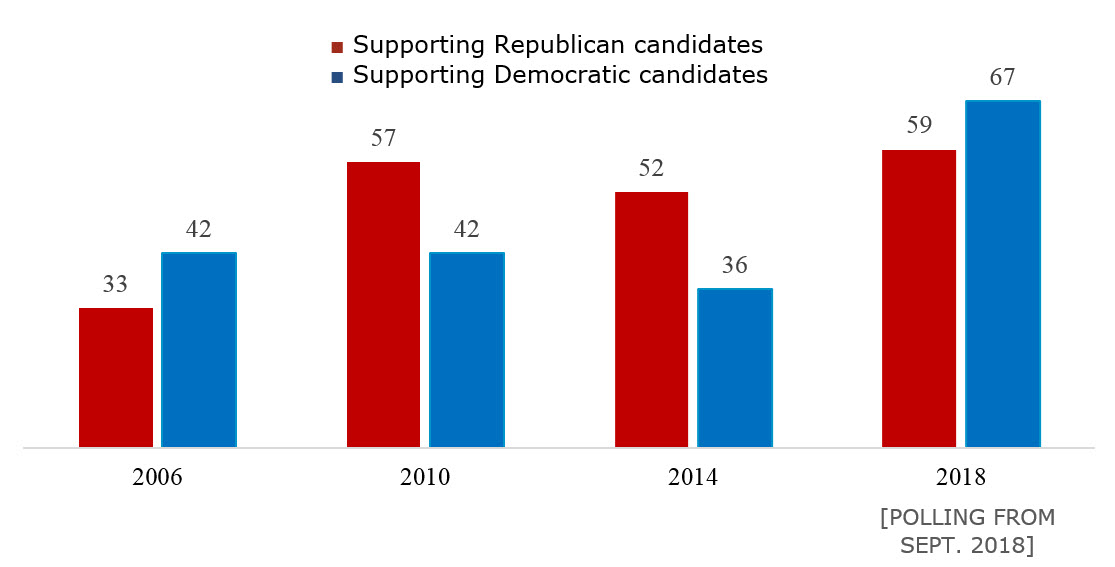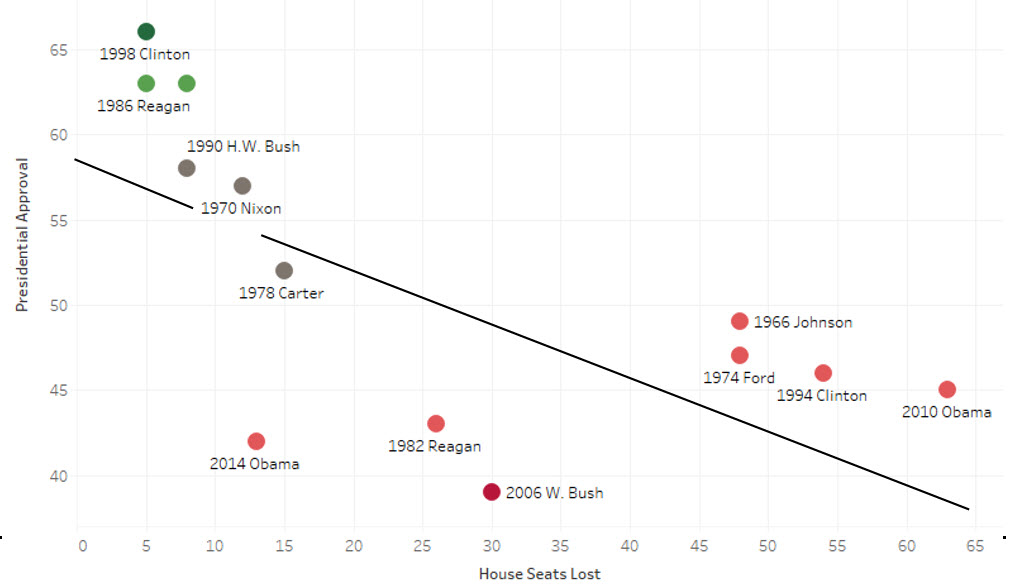Road to the Elections: Overview of House Republicans
While many prognosticators and election watchers are anticipating large Republican losses on Nov. 6, 2018, there is indeed a path for Republicans to hold their majority in the U.S. House of Representatives. Many of the same polls and websites that predicted a win by Hillary Clinton in 2016 again are forecasting a massive Democratic takeover in the House. While a narrow possibility, the GOP could end up shocking some observers next week. It is worth noting that in 2006 when Republicans lost the House majority, the party was well underwater at the end of September. Now into November, with the potential to keep many seats, Republicans are finding that many independents still are undecided going into Election Day.
Here is an overview of what Republicans are doing right:
1. Taxes and the Economy
Last week, just days before Election Day, the U.S. Department of Commerce's Bureau of Economic Analysis announced that the real gross domestic product (GDP) increased at an annual of 3.5 percent for the third quarter of 2018. While this is less than the 4.2 percent increase in the second quarter this year, it still reflects an economy on the move in a positive way. Examples such as this solidify the Republican message of "results versus resistance," and GOP candidates will be bolstered by the thriving economy.
2. Brand Differentiation
Republicans sitting in districts won by Clinton in 2016 knew from the beginning that they were going to face a tough election in 2018. Most of those candidates have figured out how to present themselves to voters as embodying a different Republican brand than President Donald Trump. Incumbent Republican members such as Barbara Comstock (VA-10), Carlos Curbelo (FL-26), John Katko (NY-24), Will Hurd (TX-23), Mike Coffman (CO-6) and Erik Paulsen (MN-3) have been working diligently to point out to voters that while they are Republicans, they will challenge President Trump and his policies to show that they are independent thinkers.
3. The Kavanaugh Hearings
Voter enthusiasm on the Democratic side has been high. However, the full-blown "resistance" of the Democratic senators and their protestors to Brett Kavanaugh's Supreme Court nomination has undoubtedly raised the enthusiasm of Republicans and possibly independent voters to come out and support Republican candidates. President Trump spent the days leading up to the elections actively campaigning in these states and Republicans believe they can get supporters to the polls with similar enthusiasm levels.
Percent of Registered Voters Who Say They Are More Enthusiastic Than Usual About Voting

Source: Pew Research Center: Voter Enthusiasm at Record High
in Nationalized Midterm Environment, Sept. 26, 2018
Key Factors Facing Republicans
It's no secret that the Democrats believe that they have a good shot at picking up the 23 seats needed to regain control of the House. Talk of a "blue wave" has been circulating since the 2016 election. Historical trends support the idea of the party in opposition to the president picking up a number of House seats. Since the end of World War II, the average net loss of House seats in midterm elections has been 26 seats.
Over the past year, the average Generic Congressional vote has fluctuated in favor of Democrats by as much as 13 points and as low as 3.2 points. Currently, it is sitting around 7.5 points in favor of the Democrats. Whether there will be a blue wave remains to be seen, but the fact is that this is a challenging cycle for Republicans because of a number of factors:
1. Historical trends
As noted above, the president's party generally loses seats in the midterm election. The two notable exceptions were 1998 when Democrats gained five seats (impeachment) and 2002 when Republicans picked up six seats (post-9/11). Otherwise, double-digit losses are the norm.
Presidential Approval Ratings vs. House Seats Lost, 1966-2014

Sources: Ally Flinn, David Wasserman, "Follow 2018 with us,"
The Cook Political Report, April 10, 2018
2. Retirements
At last count, Republicans are looking at 37 retirements in the House as compared to 18 Democrats. Six of the Republican retirements are in the 23 House seats won by Hillary Clinton in 2016. Four of the Democratic retirements are in seats won by Donald Trump in 2016. Of those 37 retirements, a fair number are in seats where the district is either lean Democratic or just barely Republican, which makes it harder for a new face on the ballot to break through. Even in a good year, this is a lot of ground to cover.
3. Educated Suburban Female Voters
There are a number of Republican incumbents in seats that were won by Clinton in 2016 where they outperformed Trump by large margins. While a number of these seats have a decent Partisan Voting Index (PVI) in favor of Republicans, some of these voters, while registered Republican, really do not like President Donald Trump or his rhetoric so the incumbent is facing an uphill battle. According to pollsters and many analysts, college-educated females are breaking in favor of Democrats in record numbers.
The Homestretch
In just a few days, we hopefully will know which party has control of the House of Representatives in the 116th Congress. There remains a possibility that we won't know the outcome of many districts on election night, and therefore the balance of the chamber. The results will decide what the next two years of President Trump's first term look like – deregulation, tax cuts and a border wall, or a flurry of subpoenas, investigations and hearings by a Democratic majority regaining gavels in committees with oversight authority.
About Our Team
For additional information, feel free to reach out to one of our team members: Hon. Thomas M. Reynolds, Kathryn Lehman, Sally Vastola, Kerry Feehery, Scott Mason, Dimitrios Karakitsos, Joel Roberson, Lisa Barkovic or Lauren Maddox.
Information contained in this alert is for the general education and knowledge of our readers. It is not designed to be, and should not be used as, the sole source of information when analyzing and resolving a legal problem. Moreover, the laws of each jurisdiction are different and are constantly changing. If you have specific questions regarding a particular fact situation, we urge you to consult competent legal counsel.
